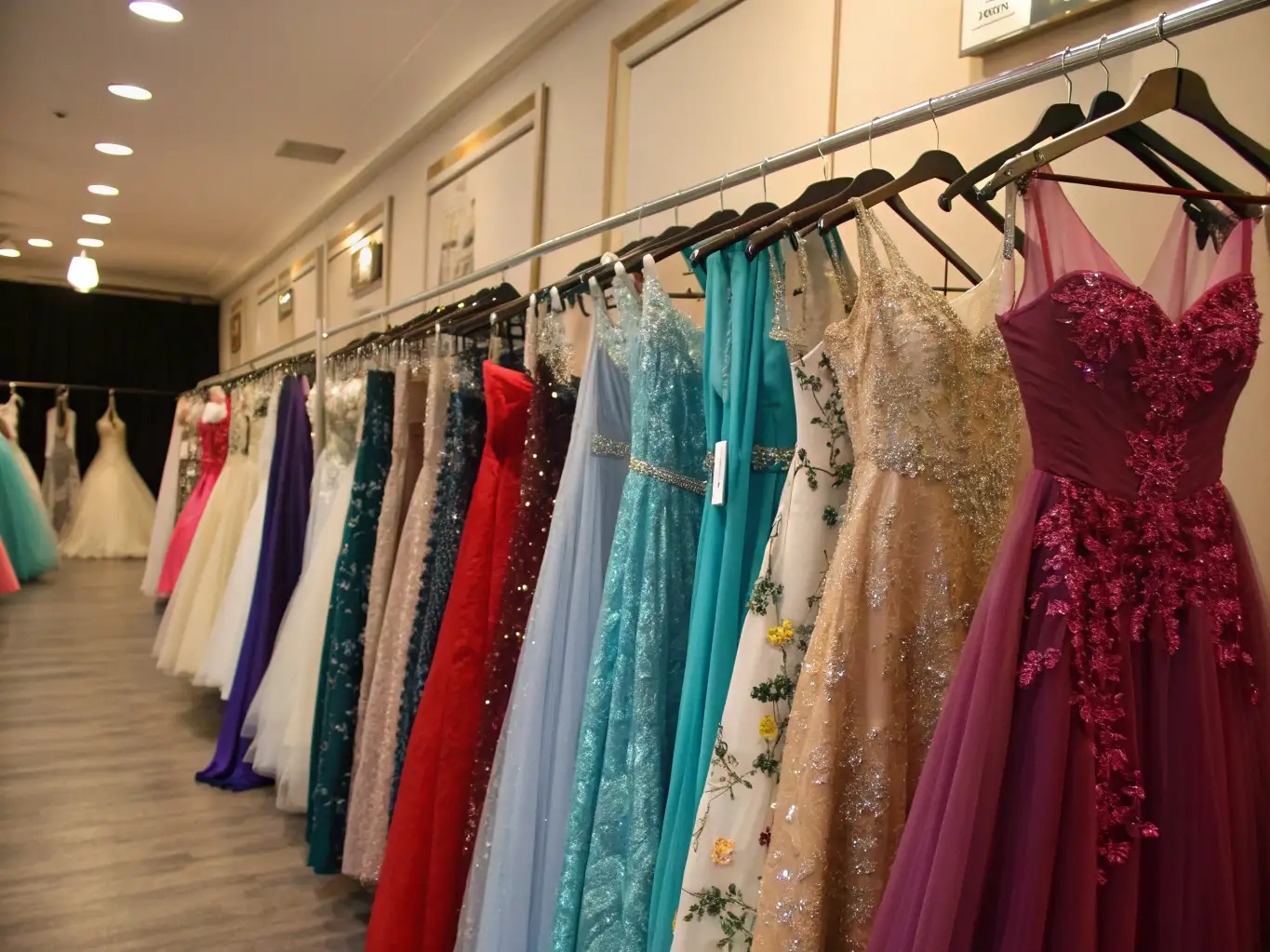India is known for its vibrant and extensive clothing manufacturing industry1, and Mumbai stands out as a key hub. From traditional garments to fashion-forward dresses, Mumbai is at the forefront of clothing production. In this article, we’ll take a closer look at why Mumbai is a prime destination for dress manufacturing, and how it compares to other major hubs in India.
Mumbai’s clothing manufacturing industry is integral to both India’s domestic and global markets. With its strong fashion industry presence2, skilled workforce3, and superior infrastructure4, it remains a leading choice for brands looking to produce high-quality dresses and other garments.
As India’s financial capital and fashion hub, Mumbai plays a significant role in the clothing manufacturing sector. Let’s explore what makes this city a key location for dress manufacturing and how it compares to other regions in India.
Mumbai: The Hub of Fashion and Clothing Manufacturing in India
Mumbai’s clothing manufacturing industry is one of the largest and most important in India. Known for its fashion-forward approach5 and robust infrastructure, Mumbai has established itself as a global leader in garment production. Let’s dive deeper into why Mumbai is so important in the world of clothing manufacturing.
Mumbai’s strategic location, diverse talent pool, and advanced infrastructure make it a premier destination for clothing manufacturing. The city caters to a range of clients, from high-end fashion brands to bulk production for global retailers.
Why is Mumbai considered a key location for dress manufacturing in India?
- Strategic Location: Mumbai’s geographical location on the west coast of India gives it a logistics advantage for both domestic and international trade. Its proximity to ports like Jawaharlal Nehru Port (JNPT) makes it easy to export garments worldwide, with well-established shipping routes to the Middle East, Europe, and the U.S.
- Fashion & Textile Hub: Mumbai is also home to India’s fashion industry and is the seat of the Lakmé Fashion Week and other major fashion events. This creates a dynamic ecosystem where manufacturers are constantly exposed to global trends, inspiring innovative designs and keeping the industry agile and forward-thinking.
- Skilled Workforce: Mumbai’s talent pool includes experienced professionals in design, production, and garment finishing. The city’s rich textile history has contributed to a highly skilled workforce that is adept at producing both traditional and contemporary designs.
- Infrastructure and Technology: The city boasts state-of-the-art facilities for clothing manufacturing, including modern factories, automation, and cutting-edge machinery that enhance productivity and efficiency.
How does Mumbai’s textile industry contribute to both domestic and global markets?
- Domestic Contribution: Mumbai supplies a vast portion of India’s domestic garment demand, serving both retail and wholesale buyers across the country. The city produces a variety of garments, from everyday wear to premium dresses, catering to the diverse tastes and preferences of the Indian market.
- Global Impact: Mumbai’s dress manufacturers have long-established relationships with global fashion brands and retail giants. The city is responsible for a significant share of India’s apparel exports, with garments reaching markets like the U.S., U.K., and European Union. Mumbai’s manufacturers are known for their speed to market and ability to produce high-quality dresses, making it a go-to destination for international buyers seeking competitive prices and quality.
Other Major Clothing Manufacturing Hubs in India
While Mumbai is the leader, other regions in India also play significant roles in the clothing manufacturing industry. Cities like Gujarat, Delhi, Tirupur, Kolkata, and Bangalore have their own strengths, making them viable alternatives or complementary hubs to Mumbai.
Gujarat, Delhi, and Tirupur have well-established garment manufacturing sectors, while Kolkata and Bangalore excel in producing specific fabric types or garments. Let’s explore how each of these regions compares to Mumbai.
How does Gujarat, Delhi, and Tirupur compare to Mumbai in terms of production capacity?
- Gujarat: Gujarat is home to some of the largest textile mills in India and is renowned for its cotton production. The state has a strong emphasis on mass-market garments like t-shirts, jeans, and basic dresses. While Gujarat’s production capacity is high, Mumbai remains the fashion-forward hub, focusing on premium and custom-made dresses.
- Delhi: Delhi has a diverse garment manufacturing base, ranging from high-quality traditional wear to modern fast fashion. However, compared to Mumbai, it’s more focused on ethnic wear, such as saris, suits, and lehengas. Delhi also has a significant export market, but Mumbai’s access to international trade routes and its global fashion presence make it a more central player in dress manufacturing.
- Tirupur: Known as the "knitwear capital of India," Tirupur specializes in knitted garments like t-shirts, activewear, and sweatshirts. While the city is a manufacturing giant for these segments, Mumbai outshines in fashion-forward dress production due to its connection to the fashion industry and high-end brands.
What makes Kolkata and Bangalore important for specific fabric types or garments?
- Kolkata: Kolkata has historically been known for its silk weaving and is a hub for handloom and ethnic wear production. It excels in producing traditional garments such as saris and cholis, which are in high demand both domestically and internationally. However, Mumbai remains the top choice for contemporary dress designs.
- Bangalore: Bangalore is an important center for garment exports and has a strong presence in the textile processing industry. The city’s focus on sustainable fabrics and organic cotton makes it a destination for eco-conscious clothing brands. While Bangalore is a rising star in eco-friendly manufacturing, Mumbai’s global presence and fashion innovation give it the edge for high-fashion dress production.
| Region | Strengths | Comparison to Mumbai |
|---|---|---|
| Gujarat | Large-scale cotton production, cost-effective | Focus on mass-market garments, lacks premium fashion focus |
| Delhi | Ethnic wear, ethnic fashion | Specializes in traditional wear, lacks fashion-forward innovation |
| Tirupur | Knitwear, activewear, low-cost garments | Primarily focused on basic garments, not high-fashion dresses |
| Kolkata | Silk, handloom, ethnic garments | Primarily traditional garments, lacks contemporary designs |
| Bangalore | Eco-friendly fabrics, sustainable fashion | Growing in eco-friendly garments, but still developing fashion focus |
What Are the Benefits of Working with Dress Manufacturers in Mumbai?
Working with dress manufacturers in Mumbai offers unique advantages, thanks to the city’s expertise, infrastructure, and fashion-forward approach. Let’s explore what makes Mumbai-based manufacturers an attractive choice for dress production.
Mumbai-based manufacturers bring fashion expertise and premium garment quality to the table. The city’s robust logistics network and proximity to major ports make it easier to export garments globally, giving brands a competitive edge.
How do Mumbai-based manufacturers offer expertise in fashion-forward and premium dresses?
- Fashion-Forward Expertise: Mumbai’s manufacturers are deeply connected to the fashion industry and are attuned to global trends. They have extensive experience working with high-end fashion designers and premium brands. This expertise allows them to produce innovative designs, ensuring your dresses stand out in the competitive fashion market.
- Premium Quality: Mumbai’s manufacturers specialize in producing premium dresses made from luxurious fabrics such as silk, chiffon, and satin. Their attention to detail in crafting high-quality garments ensures that your products are durable and stylish, making them ideal for brands targeting upscale markets.
What are the advantages of being close to Mumbai’s robust logistics and port infrastructure?
- Port Proximity: Mumbai’s access to the Jawaharlal Nehru Port (JNPT) allows for seamless international trade. The city’s logistics infrastructure is world-class, enabling fast shipping to international markets like the U.S., U.K., and Europe. Brands can benefit from shorter lead times and efficient delivery of their products to customers around the world.
- Supply Chain Integration: Being located in a hub like Mumbai means that manufacturers have easy access to the raw materials, accessories, and other components needed for garment production. This integration allows for smoother and more efficient operations, which translates to quicker production cycles and reduced shipping times.
Tips for Working with Dress Manufacturers in Mumbai
When partnering with dress manufacturers in Mumbai, it’s crucial to ensure quality, reliability, and timely delivery. Here are some essential tips to help you navigate the manufacturing process successfully.
To establish a successful partnership with Mumbai-based manufacturers, ensure that you thoroughly vet them for reliability, quality control, and timely delivery. Testing with samples and negotiating favorable terms, such as minimum order quantities (MOQ), is crucial.
What are the key things to check when sourcing fabrics, ensuring quality, and managing timelines?
- Fabric Sourcing: Ensure that your manufacturer offers access to a wide range of fabrics suited to your collection’s needs. Discuss fabric types, quality, and sourcing methods with your manufacturer to ensure they align with your brand’s vision and requirements.
- Quality Control: Establish clear quality control processes before production begins. Request samples to verify fabric, stitching, and overall construction quality. Discuss with the manufacturer how they manage quality assurance during production to avoid issues.
- Timelines: Be clear about your production deadlines and discuss timelines for samples, bulk production, and shipping. Mumbai’s manufacturers typically offer fast turnaround times, but it’s essential to discuss production schedules upfront to ensure timely delivery.
Should you start with smaller batches or request samples to test manufacturer reliability?
- Start with Samples: Always begin by requesting samples before placing a full order. This will allow you to assess the manufacturer’s capability to deliver high-quality products that meet your specifications.
- Smaller Batches: If you’re unsure about the reliability of the manufacturer, start with smaller batches or pilot runs to test the process. This can help reduce risks and ensure that the manufacturer meets your expectations before committing to larger production runs.
| Tip | Action | Benefit |
|---|---|---|
| Fabric Sourcing | Discuss fabric options with your manufacturer | Ensure fabrics match brand quality standards |
| Quality Control | Request samples and set up inspections | Guarantee consistent product quality |
| Timeline Management | Set clear production and delivery deadlines | Ensure timely delivery and avoid delays |
| Start with Small Batches | Begin with small runs or pilot orders | Test the manufacturer’s reliability before large orders |
Conclusion
Mumbai stands as the leader in clothing manufacturing in India, thanks to its vast infrastructure, fashion expertise, and global connections. While other regions like Gujarat, Delhi, and Tirupur excel in certain garment types, Mumbai’s unique combination of fashion-forward focus, premium quality, and efficient logistics makes it the ideal destination for brands seeking to produce high-quality dresses. By following the tips outlined in this article, you can build a strong partnership with Mumbai-based manufacturers and bring your dress collection to life successfully.
-
Explore the vital role of Mumbai’s clothing manufacturing industry in shaping both domestic and global markets. ↩
-
Learn how Mumbai’s vibrant fashion scene influences innovative designs and garment production. ↩
-
Understand the expertise of Mumbai’s workforce that drives high-quality garment production. ↩
-
Find out how Mumbai’s advanced infrastructure enhances efficiency in garment production. ↩
-
Discover the strategies that keep Mumbai at the forefront of fashion innovation. ↩






